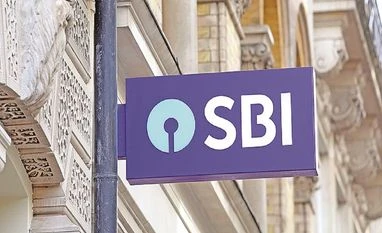Fitch affirms SBI's long term rating at 'BBB' on asset quality, loans
Agency revises outlook for lender's asset quality score from 'stable' to 'positive'
)
Listen to This Article
Rating agency Fitch has affirmed its long-term Issuer Default Rating (IDR) for State Bank of India (SBI) at 'BBB', reflecting improved asset quality, sovereign backing and appetite for retail lending.
The gross non-performing assets (NPA) of SBI, the country’s largest lender, declined to 2.8 per cent in Financial Year 2022-23 (FY23) compared to 4 per cent in FY22 and as recoveries and write-offs offset new bad loans. Fitch revised the outlook for SBI's asset quality score from “stable” to “positive” as the four-year average impaired loans ratio is expected to improve further in the near term.
Loan impairment charges should stay below one per cent, provided there are no shocks in the stressed loan pool, said Fitch in a statement.
The global agency also revised SBI’s operating environment (OE) score to 'BB+' from 'BB', considering structural improvements since the start of the Covid-19 pandemic. Healthy business sentiment, resilient financial markets and the government's capital spending can buffer global economic headwinds and inflation.
The agency said India will be one of the fastest-growing Fitch-rated sovereigns in FY24. About the IDR for SBI, it said the lender has the highest probability of extraordinary state support among Indian banks. SBI's government support rating is the same as India's sovereign rating (BBB-/Stable).
Also Read
The government has 56.9 per cent controlling ownership in SBI, which has a larger policy role than its peers.
Fitch said a loan growth of 16 per cent in FY23 reflects SBI's appetite for retail lending. Loans for SME (small and medium-sized enterprises) and corporates are picking up too. The need to optimise capital utilisation is a constraint, while the pace of growth in certain pockets could test SBI's risk controls under less-benign operating conditions.
SBI's appetite for risk is higher than is typical for a bank of its market position, which in a less-benign environment earlier exacerbated the negative impact on key financial metrics, it said.
More From This Section
Don't miss the most important news and views of the day. Get them on our Telegram channel
First Published: Aug 31 2023 | 2:51 PM IST


